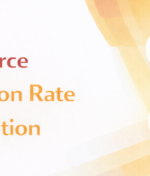
A well-designed website is vital for any business that wants to build a strong online presence. Whether you are a small startup or a large company, your website is often the first place potential customers will interact with you. This makes choosing the right website designer a crucial decision. With many options available in Canada, this can feel overwhelming. This blog aims to help you find the best website designers in Canada for your business.
Understanding Your Needs
Before you start searching for a website designer, it’s essential to understand your own needs. What are the primary objectives of your website? Are you looking to sell products online, provide information, generate leads, or create a portfolio? The answers to these questions will determine the type of website you need and the skills required from a designer.
- Define Your Goals: Set your goals for what you want your website to achieve. This could range from increasing sales, improving brand awareness, or providing customer support.
- Determine Your Budget: Knowing your budget upfront will help you narrow down your options. Website design costs can vary widely depending on the complexity and features required.
Research and Shortlist Designers
Once you have a clear understanding of your needs, start researching potential website designers in Canada. Here are some steps to help you in this process:
- Check Portfolios: Reviewing designers’ portfolios helps you evaluate their style and expertise. Look for a variety of work to ensure they can handle different types of projects. Additionally, check if they have experience in your industry, as this can be crucial for understanding your specific needs and delivering relevant solutions.
- Read Reviews and Testimonials: Client feedback offers important insights into a designer’s reliability, professionalism, and the quality of their work. Reviews and testimonials from previous clients can help you gauge the designer’s ability to meet deadlines, communicate effectively, and deliver high-quality results, ensuring you make an informed decision.
- Visit Their Websites: A designer’s own website serves as a strong reflection of their skills and design sense. Evaluate its usability, visual appeal, and overall user experience to gauge its capability. A well-crafted site indicates attention to detail and a deep understanding of effective web design principles.
Key Qualities to Look For
When evaluating potential website designers, consider the following key qualities:
- Experience and Expertise: Choose a designer with a proven track record and relevant experience. They should be well-versed in the latest design trends and technologies.
- Creativity and Innovation: A great website designer should be able to think outside the box and come up with innovative solutions that align with your brand.
- Technical Skills: Ensure the designer has strong technical skills, including proficiency in HTML, CSS, JavaScript, and other relevant programming languages.
- Communication Skills: Effective communication is crucial for a successful project. The designer should be able to understand your vision and provide regular updates and feedback.
Assessing Compatibility
It’s important to choose a designer who understands your business and shares your vision. Here are some tips to assess compatibility:
- Initial Consultation: Schedule an initial consultation to discuss your project in detail. This will give you an opportunity to gauge their understanding and approach.
- Ask Questions: Don’t hesitate to ask questions about their process, timelines, and how they handle revisions. Professional website designers in Canada should be able to provide clear and concise answers.
- Collaboration and Flexibility: Ensure the designer is willing to collaborate and is open to feedback. Flexibility in accommodating changes and revisions is also important.
Understanding the Design Process
A well-structured design process is crucial for the successful completion of your project. Here’s a typical design process that you should look for:
- Discovery Phase: This involves understanding your business, goals, target audience, and competitors.
- Planning and Strategy: Based on the discovery phase, the designer should develop a clear plan and strategy for the website.
- Design and Development: This phase involves creating wireframes, mockups, and the actual design and development of the website.
- Testing and Launch: The website should be thoroughly tested for functionality, usability, and performance before the final launch.
- Maintenance and Support: Post-launch support and maintenance are crucial to ensure the website remains updated and functional.
Considering SEO and Mobile Responsiveness

In our digital world, SEO and mobile responsiveness are critical factors that cannot be overlooked. Here’s why they are important:
- SEO: A well-optimized website can improve your search engine rankings, driving more organic traffic to your site. Make sure the designer is well-versed in effective SEO techniques.
- Mobile Responsiveness: With a significant portion of users accessing websites via mobile devices, it’s essential to have a mobile-friendly design. The designer should ensure the website looks and functions well on all devices.
Reviewing Contracts and Agreements
Before finalizing your decision, carefully review the contract and any agreements. Pay attention to the following:
- Scope of Work: Ensure the scope of work is clearly defined, including deliverables, timelines, and milestones.
- Payment Terms: Understand the payment structure, including any upfront costs, milestones, and final payments.
- Ownership and Rights: Clarify the ownership of the website and any associated assets, such as images and content.
- Confidentiality and Security: Ensure there are provisions for confidentiality and data security, especially if sensitive information is involved.
Making the Final Decision
After careful research and evaluation, it’s now time to finalize your decision. Choose a designer who not only meets your technical and creative requirements but also aligns with your business values and vision.
- Trust Your Instincts: If you feel confident and comfortable with a particular designer, trust your instincts. Your intuition is often a reliable guide in making such decisions, as it reflects your comfort and confidence in your abilities. This can lead to a more effective and collaborative working relationship.
- Start Small: If you’re uncertain, it’s wise to begin with a smaller project or phase to assess the designer’s abilities before making a commitment to a larger project. Testing their capabilities in this way can help ensure a good fit for your needs and expectations.
Conclusion
Choosing the best website designers in Canada for your business is an important decision that can impact your online presence and success. By understanding your needs, researching potential designers, evaluating their skills and compatibility, and reviewing contracts carefully, you can make an informed decision. Remember, a well-designed website is an investment that can drive growth and success for your business. Take the time to choose the right designer who can bring your vision to life and create a website that truly represents your brand.
Make your business website stand out with SaskWebs—the best choice for website design in Canada. We create websites that enhance your brand with creativity and expertise.






